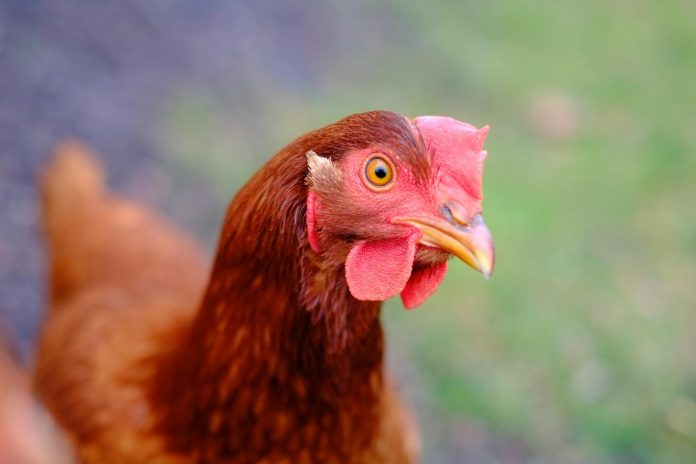Cannibalism:
This is when chickens get mean and start picking on each other. Once blood appears, the problem grows worse (as chickens are attracted to blood and the color red) and can result in the death of one or more of your chickens. Although death doesn’t need to be a result, picking is a common chicken problem that can be solved.
Some of the causes of cannibalism are overcrowding, using too bright a light in your coop all the time, not enough food or water, changes in the environment, overheating, and introducing new birds to the flock that are younger or weaker. Once cannibalism starts, assess the situation and try to problem solve the issues. Change your lighting to a red light (this will mask the blood color and help to calm the birds), remove injured birds, remove aggressive birds, etc. and keep it that way until the chicken’s behaviors settle down and peace is regained.
Egg-eating:
If a hen happens upon a broken egg, she’ll taste it and most likely like it. Then she’ll search out more eggs to eat. If she can’t find any broken ones, she learns how to break them herself. If you’re raising chickens for their eggs, this becomes a huge chicken problem!
The best course of action to protect your egg supply is to protect against broken eggs. You can do this by making sure there’s padding (wood chips, etc.) in the nesting boxes, collecting eggs regularly and proper nutrition for your chickens (which will keep the shells stronger). Also, take care not to scare your chickens off their nests when gathering eggs and don’t keep bright lights shining in the nest box area (as it causes stress).
If you find a broken egg, remove it immediately and clean it up thoroughly. If broken eggs continue to be discovered, find the hen that is breaking them (often, they rat themselves out because they have egg yolk on their head and/or beaks). However, not all broken eggs are caused by the chickens. Before you get rid of your prized hen, make sure you’re not overlooking other potential egg-eaters such as snakes, rats, dogs, etc.
READ: Common chicks problem and their solutions
Poultry Mites and Lice:
Poultry mites are tiny bugs that live off (but not on) chickens. They drink their blood and can actually kill chickens if the problem isn’t addressed and the mites destroyed. One way to detect mites is to look on the underside of the roost, and also if you notice little red spots on the eggs (meaning a mite full of blood was squished there). You can also often find them under the wings or in the vent area of your chickens.
Mite prevention and treatment include such things are keeping your coop clean, keeping your birds away from wild birds, and powders and sprays.
Poultry lice are another thing to watch out for in your flock. They’re tiny insects that live on chickens and feed off their dried skin, scabs, blood and feathers.
Molting:
Although molting isn’t really a chicken problem, per se, it’s something to be aware of. Usually once per year (but sometimes twice) a chicken will molt, or shed their feathers and grow new ones. During this time, which usually lasts around 3 months (but can take as long as 5 months), hens will not lay eggs. Consider this time their vacation from their hard egg-laying workout when their reproductive system essentially shuts down and gives the bird a rest. Molting is a natural occurrence and isn’t anything to worry about.
Broody Hens:
When a hen goes broody, her maternal instincts kick in and she plants herself on a nest of eggs, waiting for them to hatch. No amount of convincing her will remove her from the clutch of eggs (whether they’re fertilized or not). She will stay put. And be down-right mean about anyone trying to remove her.
If you want her to hatch chicks, great. But, if you are wanting to collect the eggs, you’ve got yourself a chicken problem! There are some tricks that people say work to help break the broodiness of the hen. If you’d like to avoid having a broody hen, careful selection of the breeds of your chickens will help.









